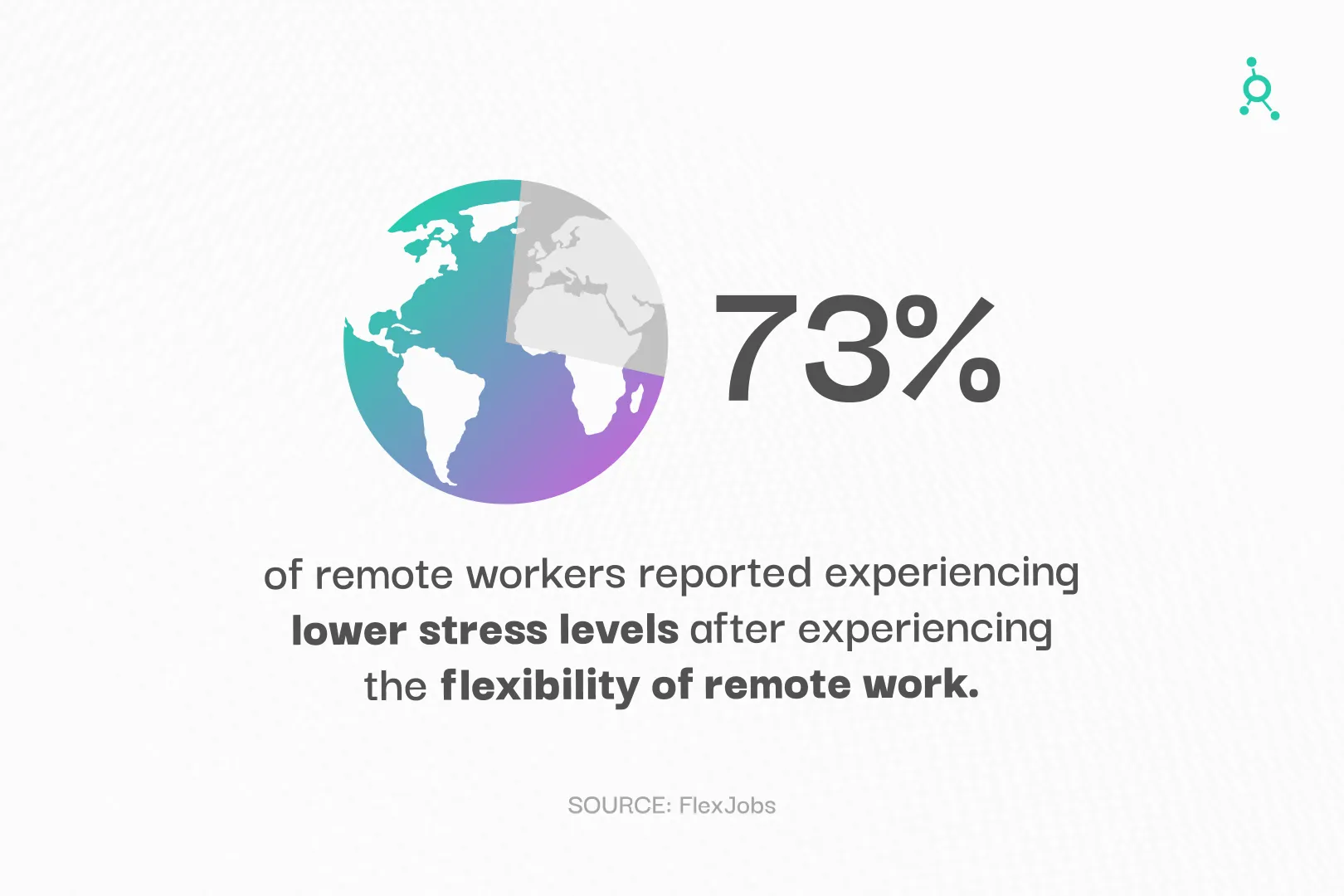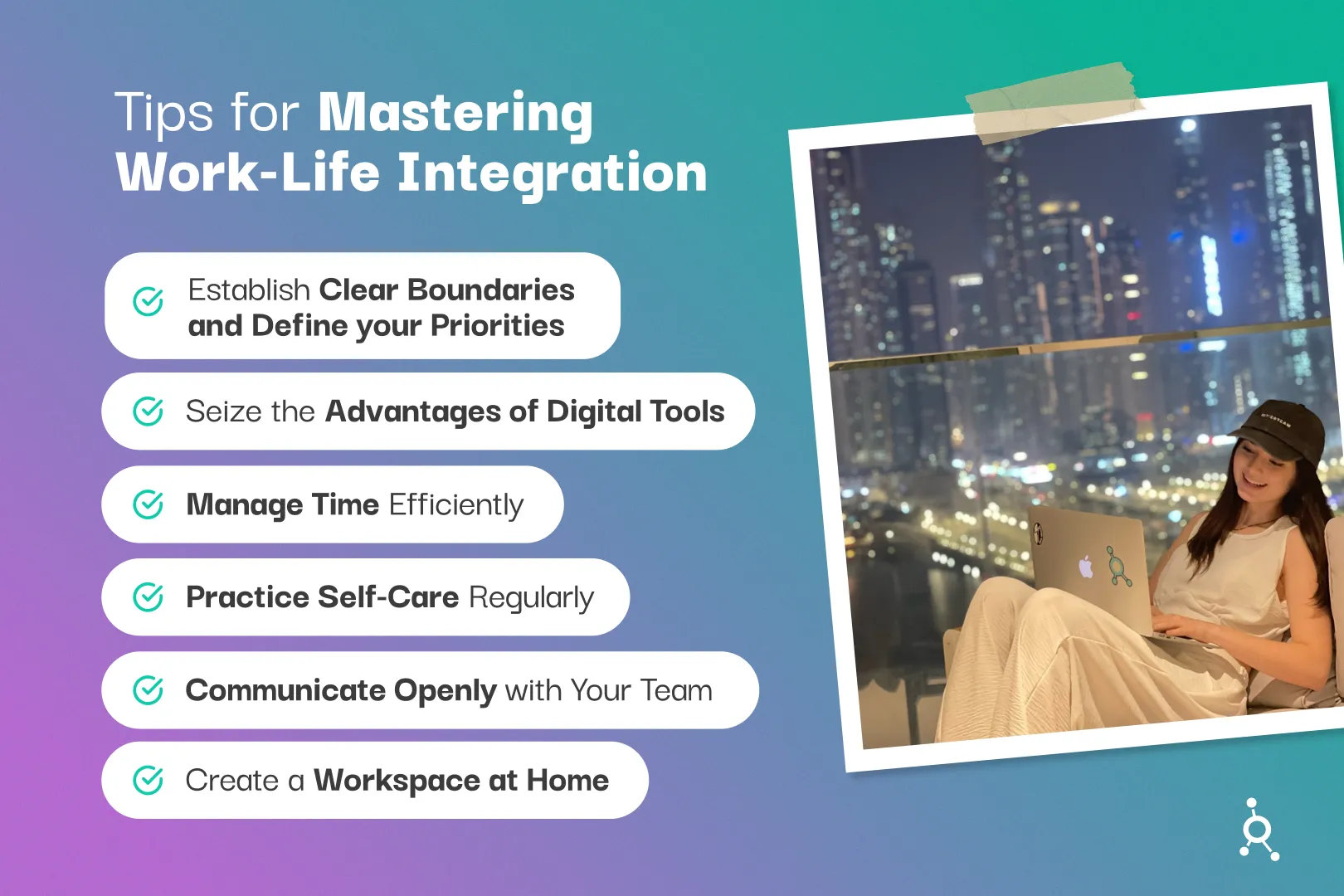Trends in Remote Opportunities: Reshape your Professional Future
Discover the latest global remote professional trends in 2023 that are revolutionizing the way we create our path. Discover valuable insights, statistics, and surveys to understand the future of work after the #RemoteRevolution. Get started on your remote work journey today and unleash your full potential!
5 min read

Are Still People Working From Home?
The landscape of work has been through a remarkable transformation in recent years, with remote work emerging as a significant paradigm shift worldwide. The advent of digital working environments has accelerated this trend, making remote work in 2022 and beyond more popular than ever before. As companies and professionals adapt to this new work environment, it becomes key to be in touch with the latest trends that are shaping the remote work landscape. In this article, we’ll delve into the most important international remote hot takes, by analyzing some sayings, statistics, and surveys to offer valuable insights for professionals nowadays.
Will Remote Work Continue in 2023?
As remote work starts to be increasingly accepted in almost all industries, a hybrid work model is gaining traction even in the most conservative business. Companies are acknowledging the benefits of allowing professionals to work both remotely and from the office, and many others prefer a 100% from-home modality. A model like this one fosters collaboration, maintains company culture, and enhances productivity on both sides. According to a survey conducted by Global Workplace Analytics, 82% of remote workers expressed a desire for a hybrid work arrangement after the pandemic, when companies were trying to “go back to normal”. This shows a growing demand for a flexible approach to work after realizing that working from home is as productive (or more!) than attending an everyday workplace.
How Has Remote Work Changed The Workforce?
One of the most significant benefits of new remote working trends is the ability to tap into a diverse talent pool with members from all over the world. Companies can now hire top talents from different cultural backgrounds and transcend every geographical barrier. This trend not only promotes a diverse and inclusive workforce but also enables businesses to access a wider range of skills and expertise, many times not offered in local professional markets. A report by Buffer reveals that 57% of companies are willing to hire employees from anywhere in the world to work remotely.
Well-Being On The Spotlight
With remote work blurring the lines between personal and professional life, the focus on professional well-being has intensified for obvious reasons. Employers are recognizing the importance of contributing to their remote workforce’s mental and physical health. Flexibility during work hours, wellness programs, and virtual team-building activities (among others) are some of the measures that are being implemented. A study by FlexJobs found that 73% of remote workers reported experiencing lower stress levels after experiencing the flexibility of remote work.

Remote Collaboration Tools As Solutions
As remote teams become the new normal, the demand for effective collaboration tools has emerged. Video conferencing, project management platforms, and communication systems are evolving to meet the requirements of brand-new remote teams. In some countries, augmented reality (AR) and virtual reality (VR) technologies have also been incorporated as collaboration tools, enabling more immersive and engaging virtual meetings.
The Importance Of Cybersecurity
The shift to remote work has put on the table an increased risk of cybersecurity threats. Companies are now fully committed to securing their networks and sensitive data in a distributed work environment. A study by Tessian revealed that 56% of IT decision-makers reported an increase in data breaches since the transition to new remote working trends. Addressing these security concerns has become a top priority for businesses around the globe.
Onboarding and Training Advantages
After the global workforce became way more remote, the traditional onboarding and training processes have also experienced many interesting changes. Virtual onboarding and training programs have surged as a practical solution for companies to ensure seamless integration of new hires. Companies are leveraging various online resources to provide comprehensive training and development opportunities for remote professionals.
Integrating Two Dimensions
Remote work has given rise to an unheard concept: work-life integration. Professionals now have the flexibility to blend their work and personal commitments along the workday, resulting in highly-increased productivity and job satisfaction. A study by Owl Labs found that 83% of remote workers believed that a flexible work schedule improved the way they can tackle both personal and professional commitments.
The Advantages of Work-Life Integration

Changing Attitudes Towards Remote Work in Latin American Countries
The behavior towards remote work in Latin American countries has undergone a significant transformation in the last few years. Traditionally, office-based work was the norm, and remote work was often perceived with skepticism. However, the recent shift towards flexible work arrangements has created a change in that perception. Employers are now recognizing the benefits of remote work, such as increased productivity, reduced overhead costs, and access to a wider talent pool. Similarly, professionals are noticing the advantages of working remotely, including improved work-life balance, reduced commuting time, and the ability to work on diverse projects with global clients.
Tips for Mastering Work-Life Integration

Establish Clear Boundaries and Priorities
While work-life integration encourages flexibility, it is key to establish clear boundaries between workdays and personal time. Define your priorities and provide yourself with time for each aspect of your life. Communicate these boundaries with your team and family to ensure mutual understanding and respect for those activities.
Seize the Advantages of Digital Environments
Digital improvement offers a variety of tools to facilitate work-life integration. Utilize collaborative apps, project management software, and communication tools to stay connected with your team while also having the freedom to work remotely and tackle personal commitments.
Manage Time Accurately
Efficient time management is the cornerstone of conquering work-life integration. Prioritize tasks based on deadlines and importance, and make sure you use time-blocking techniques to create specific periods for work and personal activities. A study published in the International Journal of Stress Management found that effective time management positively influences work-life balance.
Practice Self-Care Regularly
Taking care of yourself becomes vital for maintaining work-life integration. Set aside time for physical exercise, relaxation, and hobbies that refresh your mind and body. According to the Harvard Business Review, employees with daily self-care practices reported higher job satisfaction and outstanding work performance.
Communicate Openly with Your Team
If integrating your work and personal life is something you haven’t done yet, have an open conversation with the person that supervises your tasks about your preferences and how it can be better for the company as well. Present evidence and statistics supporting work-life integration to demonstrate its potential for your productivity and satisfaction.
Create a Workspace at Home
For remote professionals, designing a dedicated workspace at home can be the main reason for focus and productivity. Separating your work environment from your living space will make you maintain a sense of balance and prevent distractions during personal time.
And remember: work-life integration is definitely not a one-size-fits-all concept. It may require trial and error for you to find what works best for you. Start experiencing the power of work-life integration and unlock your potential for a more fulfilling and satisfying life.

Is the Future of Work Remote?
The global workforce is experiencing a monumental coming of age, and new trends in remote work have become the new normal for many industries worldwide. As we delve into the future, the trends mentioned in this article will play a vital role in reshaping the remote work landscape in the future. Embracing hybrid work models, tapping into the global talent pool, prioritizing professional well-being, fostering collaboration tools, addressing cybersecurity concerns, adapting onboarding and training processes, and promoting work-life integration are all crucial aspects to thrive in the remote work era.
Remote work offers a wide array of opportunities for businesses and professionals alike. To stay competitive and relevant in this ever-evolving work environment, it is imperative to be always informed about the latest trends and adapt to them accordingly. If you’re ready to embark on a remote work journey that will enhance your current remote work practices, get started today and unleash a whole world full of possibilities. Apply to top-notch opportunities on our CareerSite. Don’t postpone it! The time is now.







